
A retrospective spanning ten decades (1958-2018) celebrating Jean-Jacques Birgé's multifaceted career through compositions reflecting each era, blending archival recordings with new works through a remarkable ensemble of longtime collaborators, from brass and strings to electronics and voice; a sonic journey bridging past, present, and imagined futures with impressive orchestration and narrative.
In Stock
Quantity in Basket: None
Log In to use our Wish List
Shipping Weight: 5.00 units
EU & UK Customers:
Discogs.com can handle your VAT payments
So please order through Discogs
Sample The Album:
Jean-Jacques Birge-vocals, synthesizers, orchestra, Pate a son, Theremin, Tenori on, Mascarade Machine, field recording, trumpet, flute, inanga, jaw harp
Elsa Birge-vocals
Pascale Labbe-vocals
Birgitte Lyregaard-vocals
Bernard Vitet-trumpet
Yves Robert-trombone
Nicolas Chedmail-horn
Antonin-Tri Hoang-bass clarinet
Philippe Deschepper-guitar
Herve Legeay-guitar
Didier Petit-cello
Vincent Segal-bass
Cyril Atef-drums
eric echampard-drums
Michele Buirette-accordion
Amandine Casadamont-vinyls
Sacha Gattino-sampler, music box organ, whistling, electronics
Click an artist name above to see in-stock items for that artist.
UPC: 3760012000302
Label: GRRR
Catalog ID: GRRR 2030
Squidco Product Code: 35595
Format: CD
Condition: New
Released: 2018
Country: France
Packaging: Digipack w/ 52 page booklet
Recordings from 1958 to 2018.
"This album commemorates the centenary of Jean-Jacques Birge, a multi-disciplinary artist whose musical work marked his time.
In 2018 he turns to his past by composing one piece per decade, reflecting both his career and the times he went trough. As a tribute to his father who loved science fiction, he also imagines the decades to come, composing three anticipation pieces. This vectorial evocation resembles a shadow theatre whose appearances merge with reality. To conclude the album, the composer Sacha Gattino wrote a Tombeau in honor of his friend.
For the sake of authenticity, Jean-Jacques Birge mixes archives, the oldest of which dates from 1958, and recordings made with many musicians among his friends: singers Pascale Labbe, Birgitte Lyregaard, his daughter Elsa Birge, his comrade of Un Drame Musical Instantane Bernard Vitet on the trumpet, trombonist Yves Robert, horn player Nicolas Chedmail, composer Antonin-Tri Hoang on bass clarinet, guitarists Herve Legeay and Philippe Deschepper, cellist Didier Petit, Vincent Segal exceptionally on bass, drummers Cyril Atef and Eric Echampard, accordionist Michele Buirette, sound designer Amandine Casadamont and Sacha Gattino mixing sampler, organ music box and whistle.
The opera spans ten decades throughout which we can hear Jean-Jacques Birge on the synthesizer, his major instrument which he has been one of the first to use in France since 1973, but also Theremin, Tenori-on, Mascarade Machine, trumpet, flute, inanga and jew's harp, his favorite. His voice is also present, from childhood to adulthood, including three passages he sings."-GRRR
Artist Biographies
• Show Bio for Jean-Jacques Birge "Music composer, film director, multimedia author, sound designer, writer, Jean-Jacques Birgé considers music essentially in the audio-visual relationship, or at least in its confrontation with other forms of artistic expression. Founder of Disques GRRR, he was one of the first synthesists in France in 1973, and with Un Drame Musical Instantané the precursor of the return to the cine-concert in 1976. If his first electronic work dates from 1965, he composes as well for symphonic orchestras that he improvises freely with musicians from the most diverse backgrounds. For his "radiophonic" creations and his multimedia shows (live zapping on the big screen, fireworks, choreographies...), improvisation and preliminary writing merge, the original electroacoustic treatments are integrated with traditional instruments to create evocative musical fictions that he calls musique à propos. From 1995, he became one of the most popular sound designers in multimedia and a specialist in interactive musical composition, seeking to deepen the effects of meaning and develop an ever-wider range of emotions. As part of his work on major exhibitions, he recently worked at the Louvre Museum, the Cité des Sciences et de l'Industrie, the Grand Palais, the Panthéon, the Palais de Tokyo, the ZKM... Alongside around fifty vinyls and CDs, his website drame.org offers 105 unreleased albums (191 hours!) for free listening and downloading. He has been running a daily, activist and supportive blog for 20 years and gives conferences on the relationship between sound and image." ^ Hide Bio for Jean-Jacques Birge • Show Bio for Pascale Labbe "Pascale Labbé: Born on April 21, 1957, in Clichy, France, Pascale Labbé is a mezzo-soprano who studied voice as an autodidact and later with mentors such as Elène Glogevit, Christiane Legrand, Tamia, and Georges Aperghis. She has shown interest in traditional music from regions like Bulgaria, the Pygmies, the Inuits, and Ireland. Together with flutist and saxophonist Jean Morières, she founded the association Nûba, a space for musical creation and dissemination, as well as a record label. Pascale has recorded and performed with artists including Sophie Agnel, Jean-Jacques Birgé, Hélène Breschand, Keyvan Chemirani, François Cotinaud, Hugues Germain, Jérôme Lefebvre, Sylvain Lemêtre, Edward Perraud, Dominique Regef, Christophe Rocher, Paul Rogers, and Christine Wodrascka. She co-created the international improvisers' choir with Tania Pividori, Han Buhrs, Maggie Nicols, Phil Minton, Sainkho Namchylak, and Claudia Solal. As an educator, she teaches singing in Perpignan and Montpellier and has toured in India, Senegal, and across France." ^ Hide Bio for Pascale Labbe • Show Bio for Birgitte Lyregaard Birgitte Lyregaard is a jazz singer, born in 1973. She has recorded albums with El Strom, and as a trio with Marthe Lea and Axel Dörner. ^ Hide Bio for Birgitte Lyregaard • Show Bio for Bernard Vitet "Bernard Vitet (26 May 1934 - 3 July 2013) was a French trumpeter, multi-instrumentist and composer, co-founder of the first free jazz band in France (1964) together with François Tusques, Michel Portal Unit (1972) and Un Drame Musical Instantané with Jean-Jacques Birgé and Francis Gorgé in 1976. Born in Paris, France, Vitet was involved in the early fusion of jazz and contemporary music with Bernard Parmegiani and Jean-Louis Chautemps. In the 1960s, he accompanied singers such as Serge Gainsbourg, Barbara, Yves Montand, Claude François, Brigitte Bardot, Marianne Faithfull, Colette Magny, and Brigitte Fontaine. He played with jazz musicians such as Lester Young, Archie Shepp, Anthony Braxton, Don Cherry, Chet Baker, the Art Ensemble of Chicago, Steve Lacy, Gato Barbieri, Jean-Luc Ponty, and Martial Solal. In his early years, he performed with Django Reinhardt, Gus Viseur, Eric Dolphy, and Albert Ayler. Under his own name he recorded Surprise-partie avec Bernard Vitet (on trombone!), La Guêpe on texts by Francis Ponge, Mehr Licht!, and about 200 other records with the aforementioned, plus Jean-Claude Fohrenbach, Georges Arvanitas, Sunny Murray, Michel Pascal, Alan Silva, Alexander von Schlippenbach, Hubert Rostaing, Alix Combelle, Ivan Jullien, Christian Chevalier, Jef Gilson, Jack Diéval, Jac Berrocal, Hélène Sage and 17 albums with Un drame musical instantané. In 1995, he co-signs the songs of Carton with Birgé, with whom he collaborates on music for films, exhibitions, and CD-Roms. Vitet invented instruments such as a reed trumpet, a multiphonic French horn, a variable tension double-bass, the dragoon which is a giant balafon with frying pans and flower pots keyboard, a clever system of modal clocks, and astonishing musical objects for Georges Aperghis, Tamia, and Françoise Achard. Besides trumpet, he sang and played flugelhorn, piano and violin. He composed theatre music for Jean-Marie Serrault, and for the films (Les coeurs verts by Édouard Luntz, L'ombre de la pomme by Robert Lapoujade with Jean-Louis Chautemps, Bof by Claude Faraldo in collaboration with Jean Guérin, and La femme-bourreau by Jean-Denis Bonan. From 1976 to 2008, he devoted himself primarily to Un Drame Musical Instantané with Jean-Jacques Birgé, improvising and composing hundreds of pieces together, experimental essays as well as symphonic pieces, songs as well as music for films. Un D.M.I., as a trio or with their 15-piece orchestra, presented multimedia shows involving cinema, video, literature, dance and new technologies." ^ Hide Bio for Bernard Vitet • Show Bio for Yves Robert "Born in 1958, Yves Robert studied flute and trombone at the Vichy Conservatory for 9 years. He feels very quickly attracted by jazz, his energy, and the feeling of spirited freedom that he provides. To celebrate and dream of being, he decides to be virtuoso and works with multiple sound techniques (multiphonies, slaps, continuous breath, aspiration,) History to be unmatched adaptable and appreciated. After, comes the time of the conquests: In 1981, he joined the ARFI (Association for the Research of an Imaginary Folklore) in Lyon, and the GRIM in Marseille in 1983 and organizes musical meetings, concerts, festivals, educational workshops. Talented improviser, he became a reference trombonist of contemporary jazz and played on the biggest stages of Europe with among others Bernard Lubat, Chris Mc Gregor, National Jazz Orchestra 1986, and 1997/2000, Daniel Humair, Gérard Marais, Derek Bailey, Michel Portal, Marc Ducret, Joelle Leandre, Louis Sclavis, Francois Corneloup, Jacques Pellen, tour with "Prohibition", with "Bumcello" .... So it's not bad and it's going well but it's not just jazz in his world, and his obvious scenic ease brings him to collaborate on different musical shows. "La Baraque Rouge" Gérard Marais' jazz opera, "Futurities" Steve Lacy's music and dance, "Silences" Joëlle Léandre's musical theater, "L'Opéra des Pékins" by Antoine Hervé, "Double number" Duo dance music Yves Robert / Georges Appaix, "Peppermint Soda" Spectacle dance music with Anna Rodriguez, Alvaro Morell, "Oder die Glücklose Landung" by Heiner Goebbels, "The the sound" musical show young audience with J.Marie Maddeddu, "The most clear of my time "multimedia theater ... He also composes several documentary film and dance shows, including the soundtrack of "A Specialist" (1999 Real: Eyal Sivan, Rony Brauman) on the trial of Adolf Eichmann in Jerusalem." ^ Hide Bio for Yves Robert • Show Bio for Nicolas Chedmail Nicolas Chedmail is a French horn player and composer known for his innovative work in spatialized sound. As a member of the Spat'Sonore collective, he has been instrumental in developing spatialized instruments since 2001, creating immersive sonic experiences that blend performance and acoustic research. His collaborations span contemporary classical ensembles and experimental projects, including work with Gavin Bryars and Ensemble 0. ^ Hide Bio for Nicolas Chedmail • Show Bio for Antonin-Tri Hoang Antonin-Tri Hoang is a versatile composer and multi-instrumentalist focusing on synthesizer, percussion, clarinet, and alto saxophone, Hoang is renowned for his groundbreaking compositions and improvisations that often blend jazz traditions with electronic and contemporary experimental textures, collaborating regularly with leading figures in the French avant-garde. ^ Hide Bio for Antonin-Tri Hoang • Show Bio for Philippe Deschepper Philippe Deschepper is a French guitarist, born 6 August 1949 in Roubaix, France.He has played with the groups Christophe Marguet Sextet, Claude Tchamitchian Grand Lousadzak, Claude Tchamitchian Septet, Claude Tchamitchian Sextet, Das Deutsch-Französische Jazz Ensemble, Electric Pop Art Ensemble, Henri Texier Quartet, Jacques Di Donato Quintet, La Cour Des Miracles, Louis Sclavis Septet, Rémi Charmasson Quintet, Samuel Silvant Quartet, Sylvain Kassap Quartet, Système Friche, Tabato, and Yves Robert Quartet. ^ Hide Bio for Philippe Deschepper • Show Bio for Herve Legeay Hervé Legeay is a versatile French guitarist whose career has spanned rock, jazz, chanson, and theatrical music. Initially self-taught, he later studied classical guitar at the conservatories of Tours and Angers while singing in the choirs of the Théâtre Musical d'Angers. His early years were steeped in rock and roll, serving as lead guitarist and vocalist for bands like Les Nights and Stepping Stones. During this time, he toured extensively across Europe and the United States, opening for legendary artists such as Iggy Pop, the Ramones, and David Bowie. After a decade in rock, Legeay immersed himself in the world of jazz manouche, becoming one of the first instructors of Gypsy jazz at the Atla school. His deep interest in the style led him to create French Guitare, a journal dedicated to Gypsy music and the sounds of New Orleans. His expertise in jazz manouche naturally guided him toward French chanson, notably accompanying Sanseverino for 15 years and contributing to recordings for artists like Francis Lemarque, Pierre Barouh, Patricia Kaas, and Les Têtes Raides. More recently, he has focused on composing for theater, collaborating with the Comédie-Française on productions such as Un Chapeau de Paille d'Italie and Cabaret Boris Vian. Beyond performance, Legeay is a dedicated educator at Cours Florent Musique, where he bridges the worlds of music and theater, encouraging students to explore the intersection of rock, jazz, and stage performance. He emphasizes creative expression over technical precision, guiding students to infuse their music with theatricality, imagination, and poetic depth. His approach reflects his own musical philosophy-balancing structure with wildness, precision with spontaneity-making him a unique and influential figure in contemporary French music. ^ Hide Bio for Herve Legeay • Show Bio for Didier Petit "One of the finest players to have come out of Alan Silva's IACP school, cellist Didier Petit has been active on the French free improvisation scene since the mid-'80s. His playing style relies mostly on double-string arco technique. He is also often heard vocalizing on top of his instrument. He performs regularly with Parisian improvisers like Michel Doneda, Daunik Lazro, and Denis Colin, and has performed with Sakis Papadimitriou, Roger Turner, Marilyn Crispell, and Carlos Zingaro. His best-known group is the quartet NOHC, from the late '90s. He is the founder of the new music label In Situ. Petit was born in a musical family. He started on cello at age six and attended the conservatory until age 15. At this point he turned his back on his classical upbringing. Hearing Sun Ra & His Arkestra and Alan Silva's Celestrial Communication Orchestra had the power of a revelation and soon the cellist embarked on the avant-garde jazz train. He enrolled in the bassist's IACP. For the next ten years or so he studied there, then taught and performed administrative tasks, all the while playing in the CCO. During this period, he met saxophonist Michel Lobko who introduced him to the European scene of free improvisers. With him and Christine Janvier, he organized the first Décades de Musiques Improvisées in 1985, a first exercise in musical activism and networking. In 1990 he founded In Situ, a label he has pampered for 12 years before leaving Théo Jarrier in charge in 2002. 1990 is also the year Petit released his first solo album, Sorcier, on the British label Leo Records. A number of collaborations followed, including the avant-musical theater troupe Un Drame Musical Instantané. He developed a particularly strong relationship with bass clarinetist Denis Colin, playing in his trio since 1994. In turn he invited Colin to take part with saxophonist Daunik Lazro and drummer Michael Nick to his own quartet NOHC, the idea of which sparked in 1990. A first album came out in 1998 on In Situ, followed by NOHC on the Road on Leo two years later. A second solo album, Déviation, appeared in 2000 on La Nuit Transfigurée."-François Couture ^ Hide Bio for Didier Petit • Show Bio for Michele Buirette ^ Hide Bio for Michele Buirette • Show Bio for Sacha Gattino "Born in 1975, married, 1 child, driving license B, independent author, I live in Rennes. MIDI interfaces and programming, virtual instruments, sampling, field sound recording, numerous acoustic instruments, sound objects or toys fuel my research by shaking up and breaking down barriers between traditional music practices and the use of recent technological tools. Thousands of original sounds are listed through my captures, travels and instrument acquisitions. I particularly explore instrumental acoustics with extensive techniques: prepared instruments (magnets, tissue or aluminum paper, springs, etc.), singing in jaw harps and flutes, reversal (noisy instruments / musicalized everyday or industrial objects), interchange of techniques, instrument associations-hybridizations. Over time, like a cabinet of curiosities, my space also fills with collections of books, old prints, records, machines, sound objects from here and elsewhere, antique or recent, which feed my daily practice. I have been sharing my know-how since 1999 on stage, in the studio or elsewhere with artistic directors, visual artists, fashion designers, visual artists, directors, graphic designers, developers, musicians, sound engineers, architects, designers, scriptwriters, scenographers, writers, historians and students. Since 2018, I have devoted myself mainly to percussion with a real-time electroacoustic approach for the stage." ^ Hide Bio for Sacha Gattino
12/17/2025
Have a better biography or biography source? Please Contact Us so that we can update this biography.
12/17/2025
Have a better biography or biography source? Please Contact Us so that we can update this biography.
12/17/2025
Have a better biography or biography source? Please Contact Us so that we can update this biography.
12/17/2025
Have a better biography or biography source? Please Contact Us so that we can update this biography.
12/17/2025
Have a better biography or biography source? Please Contact Us so that we can update this biography.
Have a better biography or biography source? Please Contact Us so that we can update this biography.
Have a better biography or biography source? Please Contact Us so that we can update this biography.
12/17/2025
Have a better biography or biography source? Please Contact Us so that we can update this biography.
Have a better biography or biography source? Please Contact Us so that we can update this biography.
12/17/2025
Have a better biography or biography source? Please Contact Us so that we can update this biography.
Have a better biography or biography source? Please Contact Us so that we can update this biography.
12/17/2025
Have a better biography or biography source? Please Contact Us so that we can update this biography.
Track Listing:
1. Les annees 1950 (The 50s) 04:41
2. Les annees 1960 (The 60s) 04:28
3. Les annees 1970 (The 70s) 05:51
4. Les annees 1980 (The 80s) 04:05
5. Les annees 1990 (The 90s) 06:22
6. Les annees 2000 (A New Century) 05:09
7. Les annees 2010 (The 10s / Contretemps) 09:46
8. Les annees 2020 (The 20s) 06:35
9. Les annees 2030 (The 30s) 02:54
10. Les annees 2040 (The 40s) 01:46
11. Tombeau de Birge 07:22
Electro-Acoustic
Compositional Forms
Electroacoustic Composition
Rock and Related
RIO (Rock in Opposition)
European Improvisation, Composition and Experimental Forms
Large Ensembles
Song Based Music
Unusual Vocal Forms
Staff Picks & Recommended Items
New in Rock Forms
New in Experimental & Electronic Music
New in Compositional Music
Recent Releases and Best Sellers
Search for other titles on the label:
GRRR.


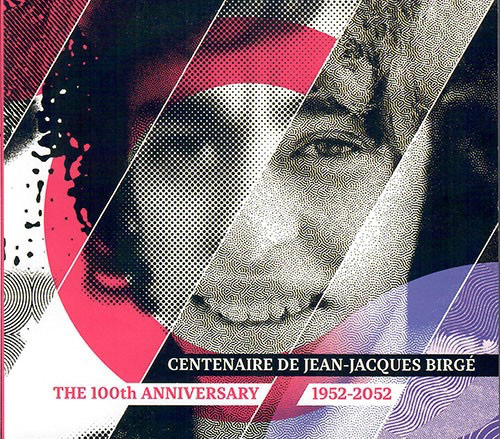




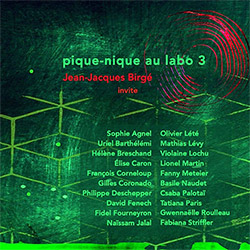




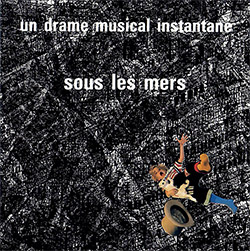
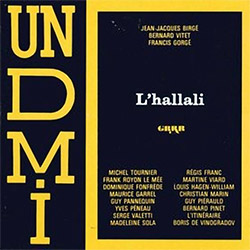

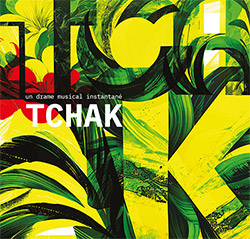



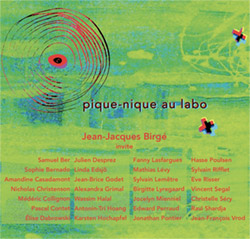


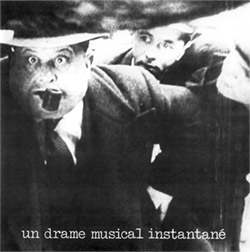


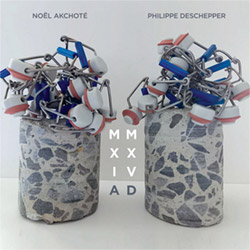
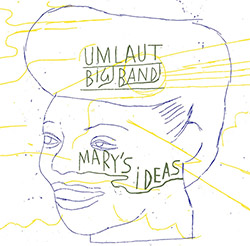
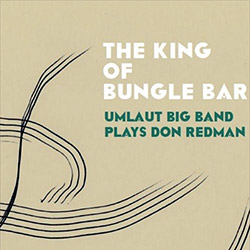


![HobbyHouse (Mia Dyberg / Axel Filip): HobbyHouse [CD + DOWNLOAD]](https://www.teuthida.com/productImages/misc4/36944.jpg)
![Mines, Kelsey / Erin Rogers: Scratching At The Surface [CD + DOWNLOAD]](https://www.teuthida.com/productImages/misc4/36945.jpg)
![Nebbia, Camila (feat/ Marilyn Crispell / Lesley Mok): A Reflection Distorts Over Water [CD + DOWNLOAD]](https://www.teuthida.com/productImages/misc4/36946.jpg)
![Vanheerentals, Adia: Taking Place [CD + DOWNLOAD]](https://www.teuthida.com/productImages/misc4/36947.jpg)
![Mines, Kelsey / Vinny Golia: Collusion and Collaboration [CD + DOWNLOAD]](https://www.teuthida.com/productImages/misc4/36948.jpg)
![Parkins, Zeena: Lament For The Maker [CD + DOWNLOAD]](https://www.teuthida.com/productImages/misc4/36949.jpg)
![Evans, Peter / Mike Pride : A Window, Basically [CD + DOWNLOAD]](https://www.teuthida.com/productImages/misc4/36950.jpg)


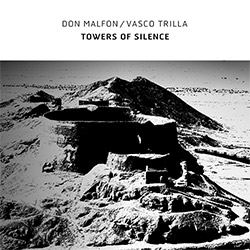
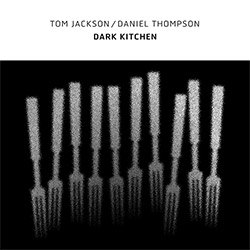
![Frey, Jurg : Composer, Alone [3 CDs]](https://www.teuthida.com/productImages/misc4/36927.jpg)
![Belorukov, Ilia / Alex Riva: Wrestling For Futility [CASSETTE w/DOWNLOAD]](https://www.teuthida.com/productImages/misc4/36994.jpg)
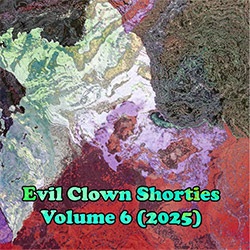
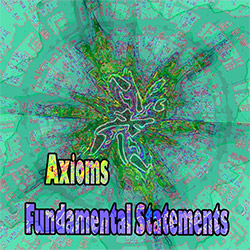










![Agnel, Sophie: Learning [VINYL]](https://www.teuthida.com/productImages/misc4/36841.jpg)

![Monaco, Amanda (w/ Michael Attias / Sean Conly / Satoshi Takeishi) : Deathblow [VINYL+ DOWNLOAD]](https://www.teuthida.com/productImages/misc4/36956.jpg)
![Frey, Jurg with ensemble]h[iatus: Je Laisse A La Nuit Son Poids D](https://www.teuthida.com/productImages/misc4/36988.jpg)
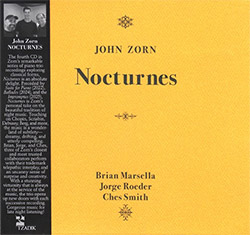
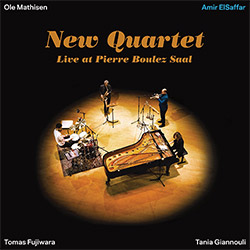
![ElSaffar, Amir / New Quartet : Live at Pierre Boulez Saal [VINYL]](https://www.teuthida.com/productImages/misc4/36830.jpg)

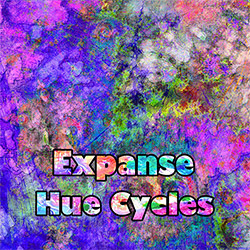
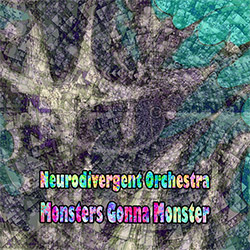
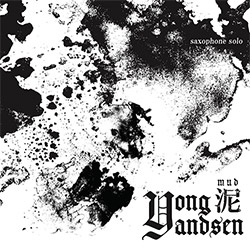

![Musicworks Magazine: #152 Fall 25 [MAGAZINE + CD]](https://www.teuthida.com/productImages/misc4/37004.jpg)
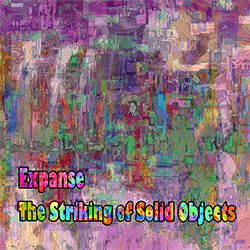




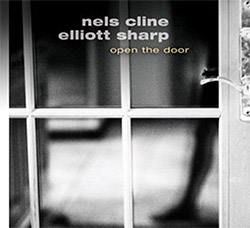
![[ahmed] (Thomas / Grip / Gerbal / Wright): Sama](https://www.teuthida.com/productImages/misc4/36976.jpg)

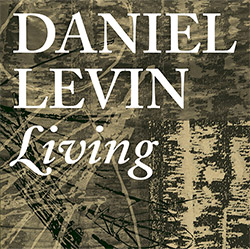
![Cleaver, Gerald / Brandon Lopez / Hprizm: In The Wilderness [COLOR VINYL]](https://www.teuthida.com/productImages/misc4/33060.jpg)
![McPhee, Joe : Defiant Jazz: a Joe McPhee Taster [VINYL]](https://www.teuthida.com/productImages/misc4/36859.jpg)
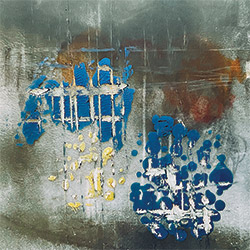
![Mateen, Sabir / Patrick Holmes / Federico Ughi : Survival Situation [LTD VINYL LP + DOWNLOAD]](https://www.teuthida.com/productImages/misc4/29891.jpg)
![Tucker, Dave / Pat Thomas / Thurston Moore / Mark Sanders: Educated Guess Vol. 1 [COLORED VINYL]](https://www.teuthida.com/productImages/misc4/30183.jpg)
![Sarian, Michael / Matthew Putman: A Lifeboat (Part I) [COLORED VINYL]](https://www.teuthida.com/productImages/misc4/30426.jpg)

![Genthon, Anouck / Lionel Marchetti: Suite Blanche [2 CDs]](https://www.teuthida.com/productImages/misc4/36642.jpg)
![Toeplitz, Kasper T.: Erosions Programmees [CD + BOOKLET]](https://www.teuthida.com/productImages/misc4/36639.jpg)
![Gate, The : Amost Live [CASSETTE + MAGAZINE]](https://www.teuthida.com/productImages/misc4/36836.jpg)






![A Magic Whistle: The Solar Cell [VINYL]](https://www.teuthida.com/productImages/misc4/36658.jpg)

![McGee, Hal: Columbus Expedition [Cassette w/ Download]](https://www.teuthida.com/productImages/misc4/36650.jpg)


![Jaeger, Kassel: Fernweh [VINYL 2 LPs]](https://www.teuthida.com/productImages/misc4/36541.jpg)





![+DOG+: The Light Of Our Lives [2 CDs]](https://www.teuthida.com/productImages/misc4/36009.jpg)


![Eternities: Rides Again [CASSETTE]](https://www.teuthida.com/productImages/misc4/36247.jpg)

![Lopez, Francisco: Untitled (2021-2022) [2 CDs]](https://www.teuthida.com/productImages/misc4/36438.jpg)





![Pisaro-Liu, Michael: Within (2) / Appearance (2) [2 CDs]](https://www.teuthida.com/productImages/misc4/36831.jpg)










![Musicworks Magazine: #151 Summer 25 [MAGAZINE + CD]](https://www.teuthida.com/productImages/misc4/36559.jpg)

![Brown, Dan / Dan Reynolds: Live At The Grange Hall [unauthorized][CASSETTE]](https://www.teuthida.com/productImages/misc4/36245.jpg)


![Zorn, John: The Song of Songs [CD + CD BOOK]](https://www.teuthida.com/productImages/misc4/36923.jpg)

![Coultrain: Mundus [COLORED VINYL]](https://www.teuthida.com/productImages/misc4/33056.jpg)
![Hprizm: Signs Remixed [COLORED VINYL]](https://www.teuthida.com/productImages/misc4/30635.jpg)
![Halls Of the Machine: All Tribal Dignitaries [CASSETTE w/ DOWNLOAD]](https://www.teuthida.com/productImages/misc4/36134.jpg)



![Koenjihyakkei: Live at Club Goodman [2 CDs]](https://www.teuthida.com/productImages/misc4/36111.jpg)

![Sorry For Laughing (G. Whitlow / M. Bates / Dave-Id / E. Ka-Spel): Rain Flowers [2 CDS]](https://www.teuthida.com/productImages/misc4/35985.jpg)

![Rolando, Tommaso / Andy Moor : Biscotti [CASSETTE w/ DOWNLOADS]](https://www.teuthida.com/productImages/misc4/36106.jpg)

![Electric Bird Noise / Derek Roddy: 8-10-22 [CD EP]](https://www.teuthida.com/productImages/misc4/35970.jpg)




![Elephant9 : Mythical River [VINYL]](https://www.teuthida.com/productImages/misc4/34624.jpg)



![Elephant9 with Terje Rypdal: Catching Fire [VINYL 2 LPs]](https://www.teuthida.com/productImages/misc4/35355.jpg)
![Coley, Byron: Dating Tips for Touring Bands [VINYL]](https://www.teuthida.com/productImages/misc4/17906.jpg)

![Lost Kisses: My Life is Sad & Funny [DVD]](https://www.teuthida.com/productImages/misc4/lostKissesDVD.jpg)